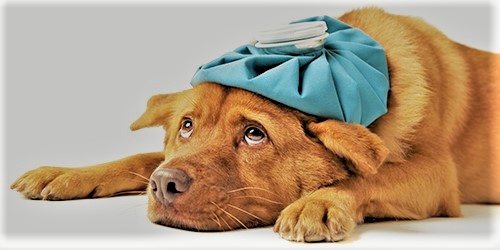Nursing a sick dog
Nursing a sick dog is one of the vital measures that a dog owner must understand. Similarly, when a dog becomes sick, the dog is in need of more care and affection based activities by the dog owners. Nursing a sick animal is usually considered as an art and this could not be taken as a causal measure.
How To Make Your Dog Feel Better, Not Worse
When your dog is feeling a touch under the weather, it is often a stressful time for both of you. Here are some ways to nurse your sick canine back to health, without making them feel worse than they already do.
Dogs can’t look after themselves once they are under the weather, so it's up to pet parents to supply loving support and therefore the conditions for a successful recovery. Properly caring for your sick dog not only helps them to feel better faster, but it also can prevent money by eliminating the necessity for return trips to the veterinarian.
This article will cover everything you would like to understand when it involves caring for a sick dog, including proper rest and exercise, the way to avoid tummy upsets, post-op care, and identifying problems.
REST AND EXERCISE
All dogs need rest and exercise within the right amounts. you'll get to adjust the quantity of your time your sick dog spends on these daily activities while they recover.
- Sick dogs need tons of sleep and rest. Provide a quiet and cozy place for your dog to relax that's freed from disturbances, including other pets or young children who could also be a hassle. you'll want to stay your sick dog during a private room or separate area of the house to make sure that they're left alone.
- Ask your veterinarian about any physical needs that your sick dog may have. Some dogs will need to take a day off from exercise (including walking, running, jumping, and playing) and it'll be up to you to form sure that they are doing . this might mean keeping your dog confined during a crate with a cushty bed.
- Other sick dogs are more capable of exercise but remember that sick dogs have weakened immune systems, and overexertion could make your dog’s condition worse. specialize in low-energy activities, and get in touch with your veterinarian if your dog seems to be struggling.
AVOIDING TUMMY UPSETS
Sick dogs are often vulnerable to tummy upsets, but their variety of the way to assist your dog to avoid this uncomfortable side effect.
- If your veterinarian has prescribed a special sort of food for your sick dog, feed them separately from other pets in order that they're unable to access the regular food.
- Make sure that each one member of the household is conscious of your dog’s dietary restrictions, which even small pieces of treats or other food could cause your dog’s stomach to urge upset.
- Eating or drinking too fast can cause indigestion. Monitor your dog’s consumption, and if you see that they're unable to hamper, separate their food and water into smaller servings.
- Many foods can ease an already indigestion, including small amounts of bland foods like boiled chicken, polished rice, and scrambled eggs. Always consult your veterinarian first to make certain that the food you're offering your sick dog is OK.
POST-OPERATIVE CARE
If your dog has undergone an operation, the likelihood is that that you simply will get to follow up with some at-home care.
- If your dog’s surgery required the utilization of anesthesia, it's going to take a short time for them to return to their old self. Provide a quiet and cozy place for your dog to rest, and keep an eye fixed on their balance. you'll get to help your dog walk while they get over the consequences of sedation.
- Your veterinarian may limit your dog’s activity for several days, or several weeks, after an operation. Follow your veterinarian’s instructions very carefully -- failing to try to do this is often a standard explanation for post-surgery complications.
- Depending on what quite an operation your dog has had, your veterinarian may prescribe medications like painkillers, ointments, or drops. confirm that you simply understand the right dosage and the way to administer the medication correctly.
- Follow all instructions provided by your veterinarian with regards to feeding, bathing, cleaning wounds, changing bandages, and post-op gear like Elizabethan collars. Many veterinarians provide a fact sheet for pet parents to reference following a surgery.
IDENTIFYING PROBLEMS
Dogs can’t tell us when something is wrong, so it’s up to pet parents to carefully monitor their pet’s recovery and a note of any problems.
- If your dog is taking medication, remember any side effects. While some could also be normal, others could signal that something is wrong.
- Keep an eye fixed on your dog’s urine and feces. In some cases, your veterinarian may warn you that these processes won't return to normal directly. In others, abnormalities might be a symbol of a significant problem.
- If your dog has been injured or undergone an operation, regularly check wounds and appearance out for any redness or swelling which can indicate an infection.
- If your dog’s condition isn't improving, getting worse, or if you observe any unusual symptoms or behavior, contact your veterinarian.
















0 comments:
Post a Comment